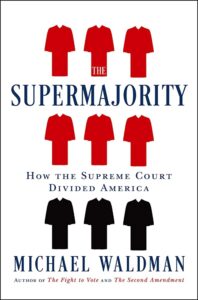Podcast: Play in new window | Download
Sealed Search Warrant After Raiding Journalist’s Home Leaves News Gatherers Timid
At 6 a.m. on May 8, seven FBI agents with guns drawn raided the home newsroom of Florida journalist Tim Burke. For nearly 10 hours, they seized computers, phones, video equipment and other devices. The raid came on the heels of Burke’s obtaining outtakes of Tucker Carlson’s interview with Ye (formerly known as Kanye West). In those outtakes, Ye made antisemitic and other offensive remarks. The FBI investigation involves alleged violations of the Computer Fraud and Abuse Act, or CFAA.
It is not clear why prosecutors believe Burke, who runs the media company Burke Communications, broke the law. That’s because the government successfully fought to keep the affidavit supporting the search warrant sealed from public view. As listeners may recall, the CFAA is the federal law that prohibits unauthorized access to a computer. Burke has said he got the outtakes from websites where Fox News uploaded unencrypted live streams to URLs that anyone could access, using publicly accessible login credentials.
In response to the raid, more than 50 organizations sent a letter to the Department of Justice in October demanding transparency about the government’s basis for believing that Burke’s newsgathering broke the law. Florida’s First Amendment Foundation and the ACLU took the lead on the letter, with the Committee to Protect Journalists, Reporters Without Borders, PEN America, the Electronic Frontier Foundation and the Society of Professional Journalists, among others, also signing on.
Guest – Seth Stern, Advocacy Director at the Freedom of the Press Foundation (FPF). Prior to joining FPF, Seth practiced media and First Amendment law in Chicago for more than a decade. Before that, he worked as a reporter and editor in the Chicago and Atlanta areas.
—-
The SuperMajority : How the Supreme Court Divided America,
In late June 2022, a package of Supreme Court decisions drastically altered the nation’s legal landscape and divided the nation. It took just three days to roll back some of the most consequential gains for civil rights, voting, the separation of church and state, a woman’s right to choose, and more.
In his new book The SuperMajority : How the Supreme Court Divided America, Michael Waldman offers an in-depth analysis of the 2022 key rulings and the radical ways in which they were crafted. He provides historical context for how the Supreme Court has amassed power far beyond what the Framers intended, and how the current supermajority ascended to the high court. Waldman also points to previous Courts (on both the right and the left) that overreached and describes their consequences for the country. Significantly, he writes that the seizure of so much power by a few members of the Court, and their energetic wielding of it, poses a crisis for U.S. democracy.
A backlash against the Court is underway. Rather than seeking a supermajority of their own, Waldman writes that, “Liberals must fall out of love with the Supreme Court.” He recommends reform measures to curb the Court’s power while applying other pressure points – such as in the court of public opinion.
Guest – Michael Waldman is the president and CEO of the Brennan Center for Justice at NYU Law School, a nonpartisan law and policy institute. An expert on the Constitution and the courts, Waldman served on President Joe Biden’s commission on the Supreme Court. He is the author of The Fight to Vote and The Second Amendment: A Biography. Waldman was director of speechwriting during the Clinton administration. Sign up for newsletter – Briefing
Hosted by attorneys Heidi Boghosian and Marjorie Cohn
———————————–



